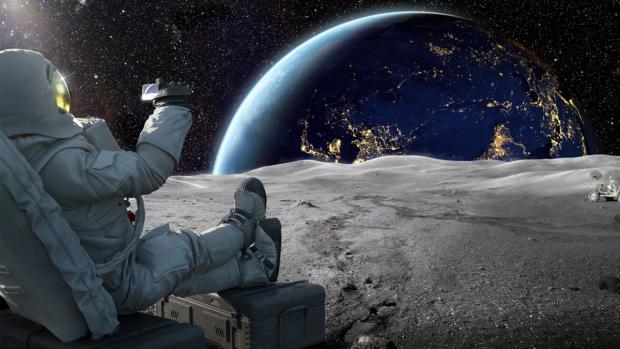
Breaking News
 Lame Duck Joe Biden Tries to Ban Natural Gas Water Heaters on His Way Out the Door
Lame Duck Joe Biden Tries to Ban Natural Gas Water Heaters on His Way Out the Door
 Pay Attention to Any New Surveillance Cameras While Driving – Breakthrough Technology...
Pay Attention to Any New Surveillance Cameras While Driving – Breakthrough Technology...
 What Happens When the J6 Hostages are Released?
What Happens When the J6 Hostages are Released?
 Americans FUME After Adam Schiff Announces New Senate Committee Assignments
Americans FUME After Adam Schiff Announces New Senate Committee Assignments
Top Tech News
 Is Taurine The Elixir Of Life? Considerations For Supplementation
Is Taurine The Elixir Of Life? Considerations For Supplementation
 DMSO Transforms The Treatment of Infectious Diseases
DMSO Transforms The Treatment of Infectious Diseases
 Quantum teleportation has begun to change the world
Quantum teleportation has begun to change the world
 Forget About Raspberry Pi! Use Your Old Phone Instead. (Really???)
Forget About Raspberry Pi! Use Your Old Phone Instead. (Really???)
 7 Electric Aircraft That Will Shape the Future of Flying
7 Electric Aircraft That Will Shape the Future of Flying
 Virginia's fusion power plant: A step toward infinite energy
Virginia's fusion power plant: A step toward infinite energy
 Help us take the next step: Invest in Our Vision for a Sustainable, Right-to-Repair Future
Help us take the next step: Invest in Our Vision for a Sustainable, Right-to-Repair Future
 Watch: Jetson founder tests the air for future eVTOL racing
Watch: Jetson founder tests the air for future eVTOL racing
 "I am Exposing the Whole Damn Thing!" (MIND BLOWING!!!!) | Randall Carlson
"I am Exposing the Whole Damn Thing!" (MIND BLOWING!!!!) | Randall Carlson
 Researchers reveal how humans could regenerate lost body parts
Researchers reveal how humans could regenerate lost body parts
Astrophysicist's Chilling Prediction: Galactic War Awaits As Billions Of Humans Will Colonize Sp

This rapid expansion, he warns, will inevitably spark interplanetary conflict across the solar system.
LEX FRIDMAN: Do you think if humans colonize Mars, the dynamic between the civilization on Earth and Mars will be fundamentally different than the dynamic between individual nations on Earth right now? Like, that's a thing to load into the simulation we're talking about.
ADAM FRANK: If we settle Mars, it will very quickly want to become its own nation.
LEX FRIDMAN: Well, no, there's already going to be nations on Mars—that's guaranteed. Once you have a million people, there's going to be two tribes and then they're going to start fighting. Right? And the question is interplanetary fighting—how quickly does that happen and does it have a different nature to it because of the distances?
ADAM FRANK: Are you a fan of The Expanse? Have you watched The Expanse? Great show. Because it's all about the—I highly recommend it to everybody. It's based on a series of books that are excellent. It's on Prime, six seasons, and it's basically about the settled solar system. It takes place about 300 years from now, and the entire solar system is settled. And it is the best show about interplanetary politics. The first season, actually, Foreign Affairs said the best show on TV about politics that takes place is interplanetary.
I think human beings being human beings, yes, there will be warfare and there will be conflict. And I don't think it'll be necessarily all that different, you know, because really I think within a few hundred years we will have lots of people in the solar system, and it doesn't even have to be on Mars. We did a paper where we looked—based on CU, I wanted to know about whether an idea in The Expanse was really possible. In The Expanse, the asteroid belt, what they've done is they've colonized the asteroid belt by hollowing out the asteroids and spinning them up and living on the inside because they have the Coriolis force.
And I thought, like, wow, what a cool idea, and when I ran the blog for NPR, I actually talked to the guys and said, 'Did you guys calculate this, see whether it's possible?' Sadly, it's not possible. The rock is just not strong enough. If you tried to spin it up to the speeds you need to get one-third gravity, which is, I think, the minimum you need for human beings, the rock would just fall apart, it would break.



